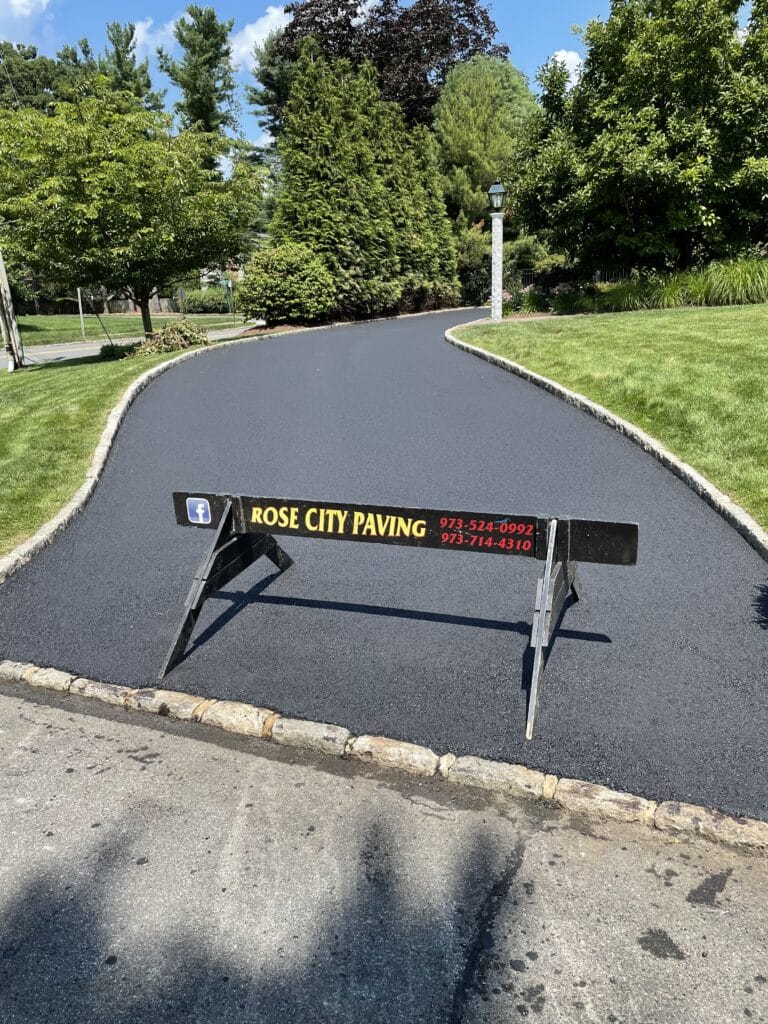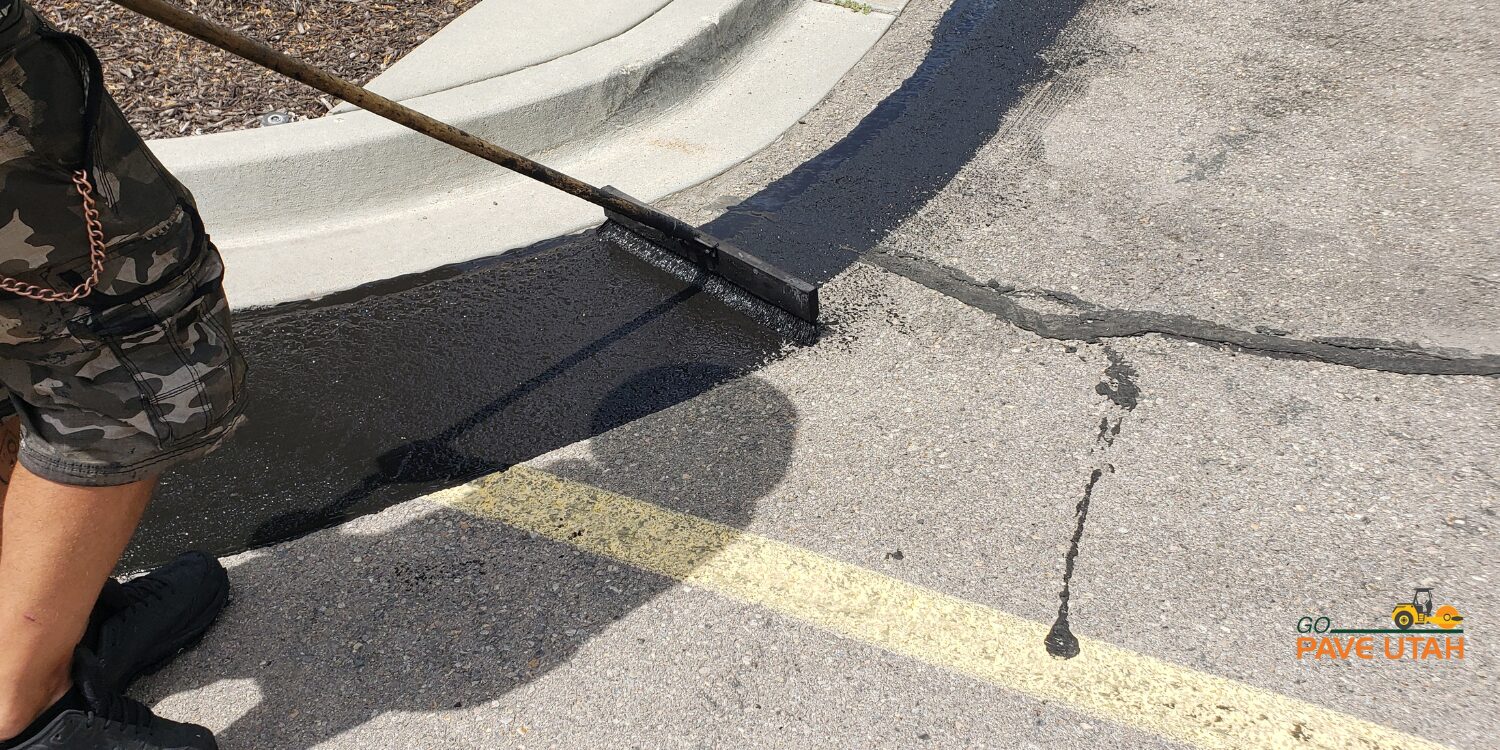Seal in Quality: Professional Solutions for Asphalt Repair and Sealing
Seal in Quality: Professional Solutions for Asphalt Repair and Sealing
Blog Article
Cold Mix Asphalt Vs. Hot Mix Asphalt: Which Is Right for You?

Make-up Differences
Cold mix and warm mix asphalts vary significantly in their composition, with distinct attributes that influence their performance and applications. Cold mix asphalt is produced by emulsifying the asphalt binder with water and an emulsifying agent prior to mixing it with accumulation. This method enables for the asphalt to be convenient at reduced temperature levels, making it optimal for short-term repair work and for use in colder weather. Hot mix asphalt, on the various other hand, is produced at heats, usually between 300-350 ° F, which helps to achieve far better compaction and a more resilient end product. The warm mix asphalt production process involves heating up the aggregate and asphalt binder independently prior to incorporating them at the asphalt plant.
Furthermore, cold mix asphalt tends to be less dense and more flexible than hot mix asphalt. This flexibility makes it far better matched for locations with greater degrees of motion, such as driveways or roads with heavy traffic. In contrast, hot mix asphalt is understood for its high sturdiness and resistance to rutting and breaking, making it a recommended option for freeways and high-traffic roads where long life is important.
Installment Process Variations
The process of setting up chilly mix and warm mix asphalt shows remarkable differences in their requirements and treatments. Cold mix asphalt, being an extra versatile material, can be used directly from the bag or container onto the pocket or damaged area. It calls for very little preparation work, such as cleaning the location and compacting the cool combine with hand tools. This makes it a convenient alternative for temporary and fast fixes. On the other hand, warm mix asphalt requires an extra sophisticated setup procedure. It includes warming the blend to heats prior to laying it down on an appropriately prepared base. The preparation consists of compacting the base, using a tack coat, and making use of heavy equipment like pavers and compactors for a durable and smooth surface. Due to the home heating requirements, warm mix asphalt installations are normally carried out by experts with specialized equipment, making sure an extra permanent and structurally sound result.
Resilience and Durability Aspects
When thinking about asphalt alternatives, durability and durability are crucial aspects to examine for long-term sidewalk efficiency,. Hot mix asphalt (HMA) is known for its extraordinary toughness and long life. The heats during the mixing and laying process allow for much better compaction, causing a denser and stronger pavement structure. This causes HMA being a lot more immune to heavy web traffic tons, extreme weather condition conditions, and the effects old contrasted to chilly mix asphalt (CMA)
In regards to durability, HMA typically outmatches CMA because of its exceptional toughness and resistance properties. HMA sidewalks have a longer life span, calling for less constant repair work and upkeep, which can translate to set you back savings over time. Additionally, HMA sidewalks are much more conveniently customizable to fulfill particular task demands, better improving their durability.
Expense Factors To Consider
Considering the monetary implications is a crucial aspect when reviewing the selection between hot mix asphalt (HMA) and cool mix asphalt (CMA) for sidewalk tasks. While the first price of warm mix asphalt is commonly greater than that of cool mix asphalt, HMA usually gives an extra economical option in the long run due to its exceptional toughness and durability.
In enhancement to material prices, it's vital to consider the costs associated with installment and maintenance when contrasting HMA and CMA. Inevitably, the decision in between HMA and CMA should take right into account not simply the initial price but likewise the lasting financial ramifications to determine the most economical alternative for the particular sidewalk task.
Environmental Effect Contrast
Comparison of the environmental effects between hot mix asphalt (HMA) and chilly mix asphalt (CMA) exposes click for info unique differences in sustainability practices. HMA production requires high temperatures, leading to increased power intake and greenhouse gas exhausts.
In addition, the usage of CMA usually entails reusing existing asphalt sidewalk, promoting resource conservation and lowering the quantity of waste sent out to garbage dumps. This recycling aspect better boosts the sustainability of CMA contrasted to HMA. In general, when considering the environmental influence, CMA becomes a much more ecologically sustainable selection as a result of its lower energy needs, lowered discharges, and the capacity for reusing existing products. By choosing CMA over HMA, road building and construction jobs can contribute favorably to ecological conservation initiatives.
Verdict
Finally, the option in between cold mix asphalt (CMA) and hot mix asphalt (HMA) relies on various aspects such as make-up, installation procedure, resilience, durability, price, and environmental effect. asphalt repair. While CMA provides a fast and cost-efficient remedy for small repair work, HMA makes sure premium resilience and durability for rush hour locations. Consider these elements very carefully to figure out which kind of asphalt is the right click reference choice for your paving needs

Considering the monetary effects is an important facet when assessing the option in between hot mix asphalt (HMA) and chilly mix asphalt (CMA) for sidewalk projects. While the preliminary expense of hot mix asphalt is generally greater than that of cold mix asphalt, HMA often offers an extra cost-effective option in cold mix asphalt the lengthy run due to its superior sturdiness and long life. cold mix asphalt.Comparison of the environmental effects in between warm mix asphalt (HMA) and cold mix asphalt (CMA) reveals unique differences in sustainability methods.In verdict, the selection in between cool mix asphalt (CMA) and hot mix asphalt (HMA) depends on various elements such as structure, setup procedure, longevity, longevity, cost, and environmental impact
Report this page